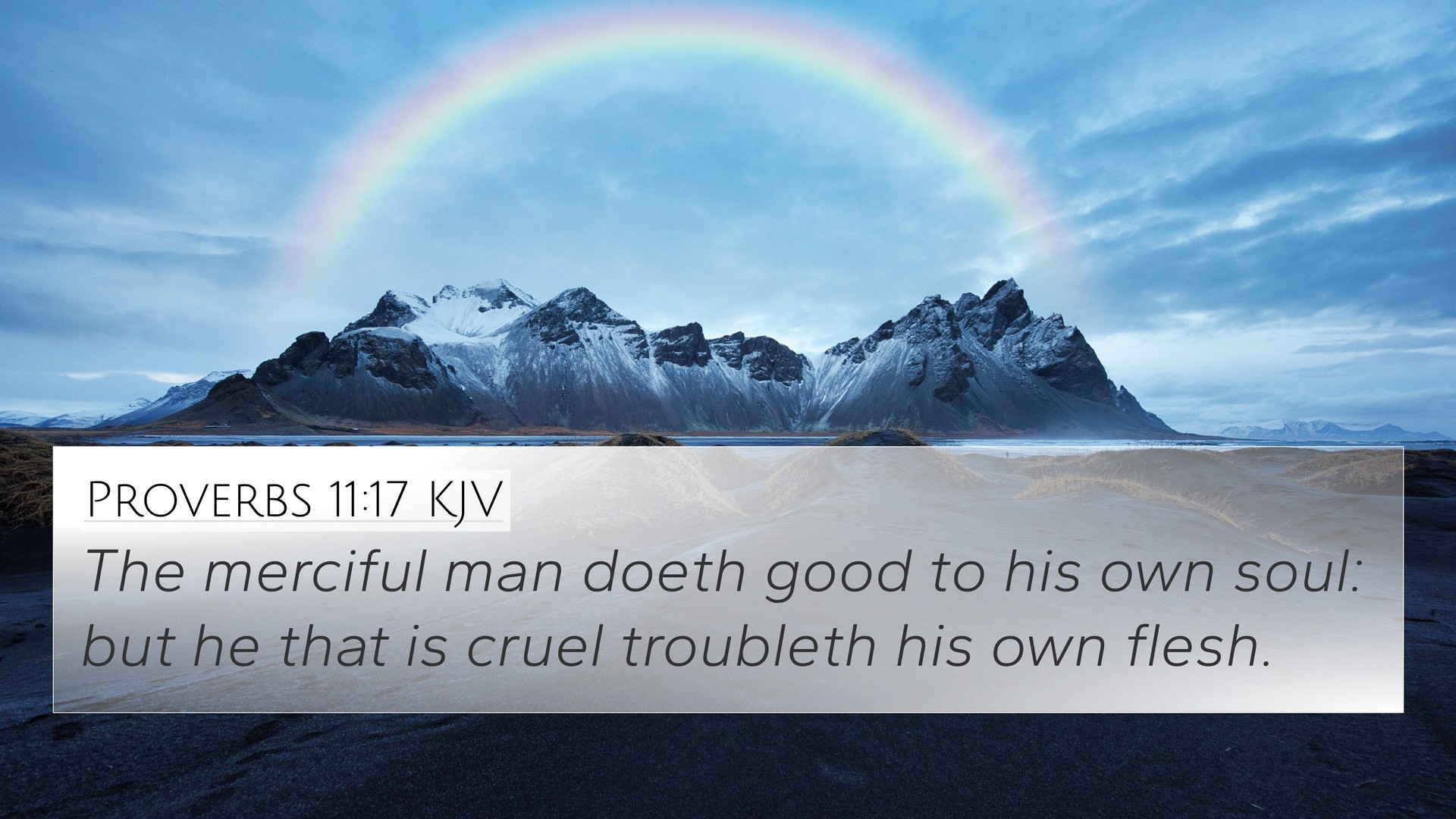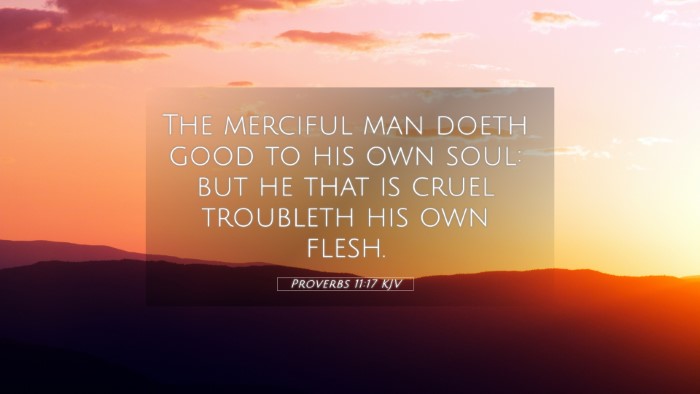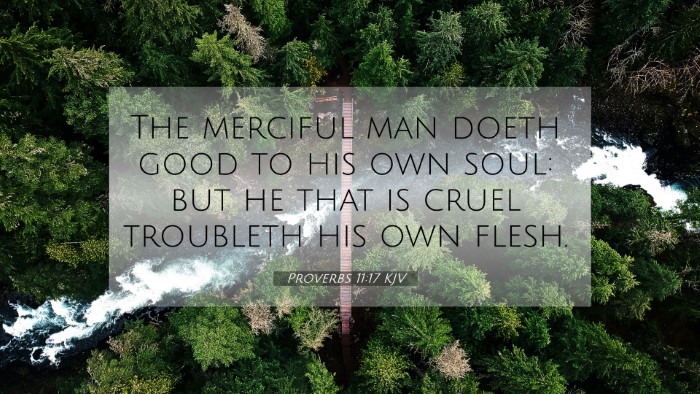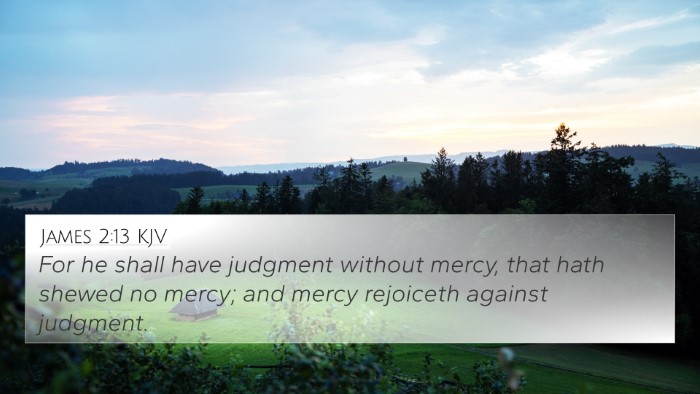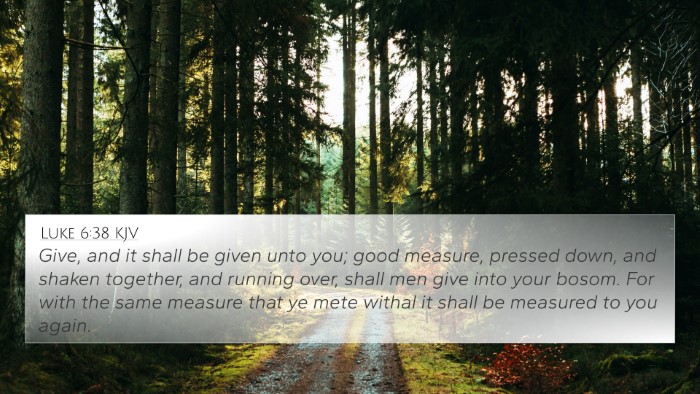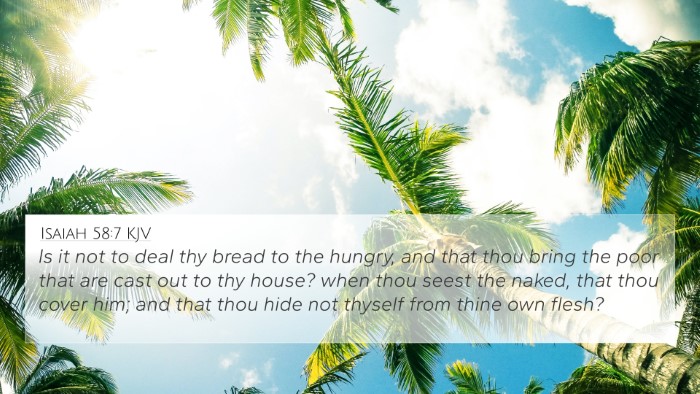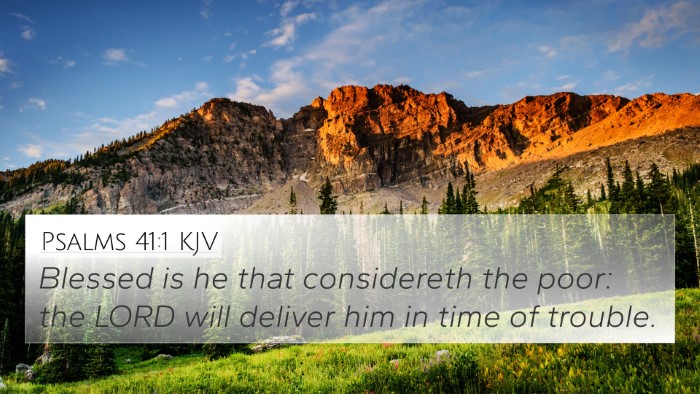Understanding Proverbs 11:17
Proverbs 11:17 states, “The merciful man doeth good to his own soul: but he that is cruel troubleth his own flesh.”
This verse presents a powerful dichotomy between mercy and cruelty, emphasizing the deep moral and spiritual implications of one's actions on oneself.
Summary of Biblical Meaning
This verse speaks to the intrinsic relationship between our actions towards others and the condition of our own souls. The merciful individual not only acts kindly towards others but also invests in their own spiritual well-being. In contrast, cruelty towards others results in inner turmoil and suffering.
Commentary Insights
-
Matthew Henry:
Henry highlights that showing mercy and kindness not only rewards others but enriches the giver’s own life. He suggests that the essence of being merciful leads to spiritual health and happiness, stating that care for others reflects positively on one's own soul.
-
Albert Barnes:
Barnes elaborates on the ramifications of cruelty, pointing out that it not only harms others but returns upon the perpetrator. The idea is that those who inflict pain do so at a cost to their own well-being. His commentary underscores the interconnectedness of human actions and personal effects.
-
Adam Clarke:
Clarke's interpretation emphasizes the natural law written in the hearts of men - that kindness breeds kindness and violence begets suffering. He provides examples from the life of Jesus, noting that His mercy brought peace and healing, contrasting the destructive nature of cruelty.
Cross-References
Proverbs 11:17 can be understood more fully by exploring the following cross-references:
- Matthew 5:7: “Blessed are the merciful: for they shall obtain mercy.”
- James 2:13: “For he shall have judgment without mercy, that hath shewed no mercy; and mercy rejoiceth against judgment.”
- Lamentations 3:22-23: “It is of the LORD's mercies that we are not consumed, because his compassions fail not.”
- Luke 6:36: “Be ye therefore merciful, as your Father also is merciful.”
- Isaiah 58:7: “Is it not to deal thy bread to the hungry, and that thou bring the poor that are cast out to thy house?”
- Galatians 6:7: “Be not deceived; God is not mocked: for whatsoever a man soweth, that shall he also reap.”
- Proverbs 21:13: “Whoso stoppeth his ears at the cry of the poor, he shall cry himself, but shall not be heard.”
Thematic Connections
The theme of mercy and cruelty in Proverbs 11:17 resonates throughout the Bible, showcasing how critical it is to align our actions with divine principles that promote compassion and kindness.
This thematic connection can be further explored through:
- Mercy and Justice: A key theme found in both the Old and New Testaments, highlighting the nature of God’s forgiveness in contrast to human cruelty.
- The Beatitudes: Jesus’ teachings in Matthew 5 serve as a profound exploration of how mercy impacts one's spiritual journey.
- Spiritual Reaping and Sowing: The biblical principle that highlights the consequences of our actions, closely linked to the ideas presented in Proverbs 11:17.
Application in Daily Life
Understanding Proverbs 11:17 invites readers to reflect upon how their daily actions either contribute to the wholeness of their own soul or lead to self-inflicted turmoil. This verse encourages us to:
- Practice generosity: Seek opportunities to show kindness, thus enriching both ourselves and others.
- Choose compassion over cruelty: Recognize that our treatment of others returns to us, shaping our spiritual and emotional landscape.
- Embrace accountability: Understand that every act of kindness or cruelty defines our character and affects our relationship with God.
Conclusion
Proverbs 11:17 serves as a reminder of the importance of mercy in our lives. It challenges us to consider not only our actions but also their long-lasting impacts. By exploring the connections between this verse and others in scripture, we can gain a comprehensive and profound understanding of how mercy relates to our overall spiritual journey.
